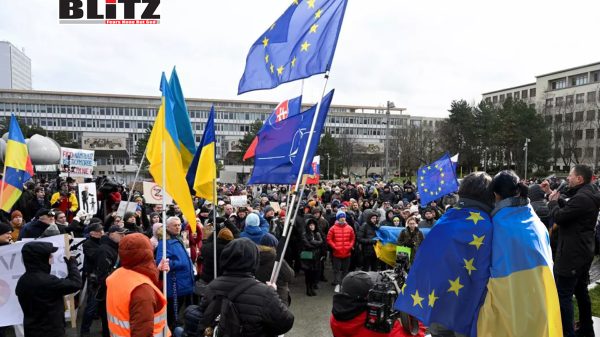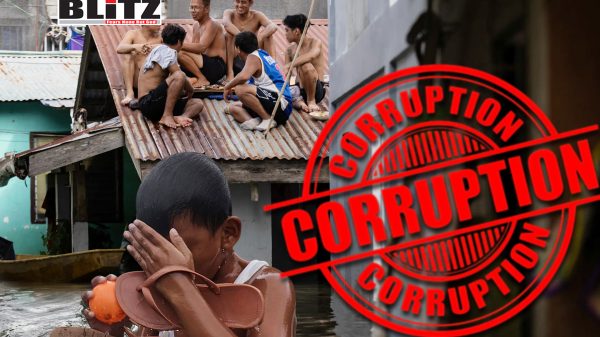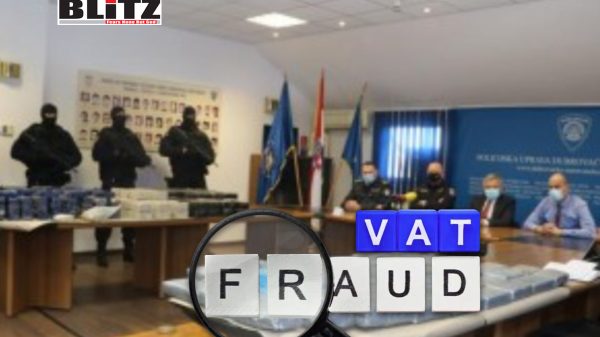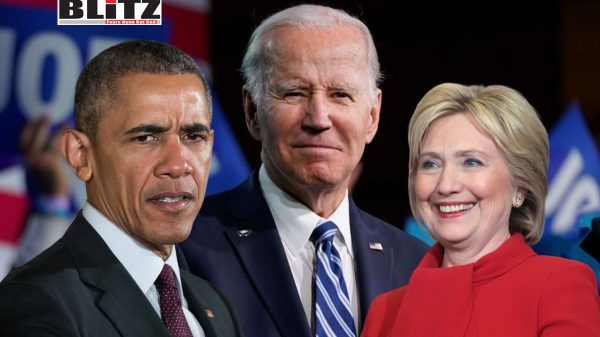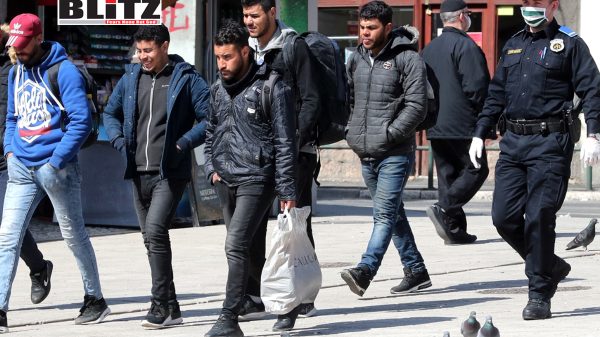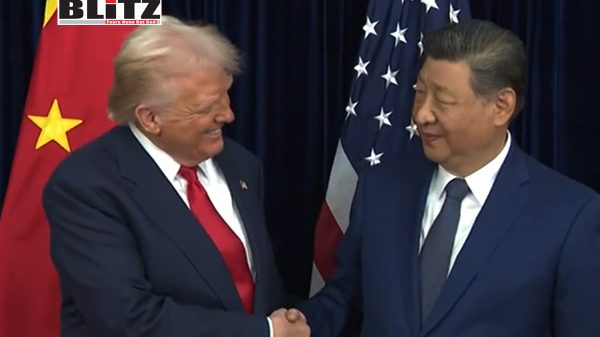Washington races to calm Brussels after leak triggers EU meltdown
- Update Time : Thursday, November 27, 2025
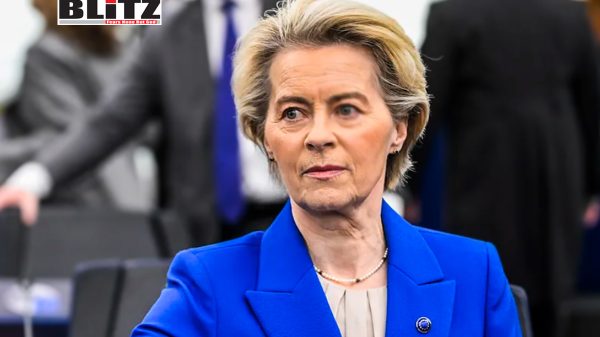
The leak of a supposed 28-point peace plan for Ukraine-purportedly crafted between Washington and Moscow-sent shockwaves through European capitals. Not because of what was in the proposal, but because Europe wasn’t invited, consulted, or even shown the courtesy of a heads-up. For the EU leadership, long accustomed to mistaking its own noise for global relevance, the discovery that they weren’t included was like watching the family realize the kids planned Thanksgiving dinner without telling grandma. And grandma is now screaming.
Within hours of the leak, European officials descended into a level of theatrics normally associated with a reality show on the brink of cancellation. The outcry from Brussels became so over-the-top that US Secretary of State Marco Rubio reportedly had to rush to Geneva on November 23 just to soothe their tantrum-like a weary parent trudging down a supermarket aisle to pry a shrieking child away from flinging canned goods. The rest of the world simply sighed; the EU went straight into a full meltdown.
The most theatrical performer in this diplomatic circus was none other than the unelected President of the European Commission, Ursula von der Leyen-affectionately dubbed “Queen Ursula” by critics for her regal posture and democratic deficit. On November 23, she solemnly declared that the EU’s “centrality” must be respected in any peace plan. Ukraine, she insisted, “must have the freedom and sovereign right to choose its own destiny,” which-how convenient-she claims is a European one.
It was helicopter-parenting at its finest. If Ukraine is truly sovereign, why does von der Leyen speak like she’s waiting by the landline for her teenage son to call and say he’s made it home from the movies? Especially when she herself revealed that, the moment the plan leaked, her first instinct was to “reach out to Zelensky to discuss the matter.” Discuss? Or instruct?
This is the EU’s version of “freedom”: independence, as long as Brussels approves your choices.
European Council President Antonio Costa added to the comedy by admitting he had no idea what was in the proposal because no one had bothered telling him. The EU had been waiting by the phone like a jilted lover, obsessively checking for a message that never came.
And when they finally learned what was in the draft? They did not feel relieved. They felt humiliated.
Rubio’s Geneva visit was little more than a diplomatic pacifier, an attempt to soothe Europe’s bruised ego and assure them that, yes, they still matter-if only symbolically. The truth is harsher: the heavyweights of global geopolitics don’t view Europe as essential to solving this conflict. At best, they see Brussels as a useful ATM. At worst, a loud, nagging bystander.
The moral outrage would be more compelling if it weren’t so transparent. The EU isn’t panicking because Ukraine might be sold out-they’ve tolerated that possibility many times before, so long as Brussels could play referee. No, the real fear is being excluded from a geopolitical bargain where everyone else gets something while Europe ends up with nothing but the bill.
Reportedly, the deal includes US-Russian joint ventures, profit-sharing, sanction relief for Moscow, and lucrative reconstruction contracts for Washington. And the EU? Their role appears to be writing a $100 billion check to Ukraine and keeping up their usual background noise about “standing with Kyiv.”
In other words: America gets the profits; Russia gets normalized; Europe gets the humanitarian receipts.
Now it’s obvious why they’re screaming.
Then came the German commentary. One of Berlin’s heavy hitters, Johann Wadephul, dismissed the leaked proposal as “not a real plan but a list of topics.” He added that “it will be Ukraine that decides what compromises it makes.”
Sure. And a college freshman “decides” which major to pursue while living under their parents’ roof and relying on their money. The illusion of choice is very pretty on paper.
Germany, which has contributed weapons, money, training, intelligence, and political pressure, knows very well that Ukraine’s “choices” are shaped by the preferences of its backers. But Wadephul’s insistence on moral authority makes it sound like he’s been drafting peace plans his whole career. In reality, Berlin has presided over some of Europe’s worst foreign-policy blunders of the 21st century.
EU officials quickly began parroting the same line: that this peace proposal is “about Ukraine without Ukraine.” Ursula said it. The Czech foreign minister said it. Norway said it. Even diplomats usually asleep at their desks chimed in.
But here’s the obvious question: How much free stuff does Ukraine have to receive before it counts as being “about Ukraine”? Europe has showered Kyiv with cash, weapons, ammunition, social programs, refugee support, logistical infrastructure, diplomatic cover, and near-endless political validation. If that level of investment doesn’t grant them some influence, what does?
Christmas is “about the children,” yes-but that’s only because the children get all the gifts. Ukraine, in this analogy, is the kid drowning in wrapping paper while everyone else tries to calculate how much the holiday cost them.
One striking detail about this proposal is that it isn’t about Europe at all. Europe isn’t a guarantor, a broker, a negotiator, or even a symbolic figure in the draft. This is horrifying for the EU’s bureaucratic elite because it reveals a geopolitical truth they’ve tried to avoid: Europe is no longer a central actor but a self-inflicted spectator.
EU foreign policy chief Kaja Kallas made the situation even more absurd. She stated, “For any peace plan to succeed, it has to be supported by Ukraine, and it has to be supported by Europe.”
Why Europe? Since when does the continent get veto power over a sovereign country’s peace terms? If the very point of a peace plan is to change the situation, then insisting that your “position hasn’t changed” is not a principled stance-it’s a confession of why nothing has progressed.
European leaders increasingly act as though they’re fighting Russia directly. They warn citizens that Putin is preparing to invade Europe in 2030. They encourage people to stockpile canned tuna. They pour billions into weapons programs. They cast skeptics as traitors. It’s performative wartime hysteria masquerading as responsible leadership.
The most disturbing example came from French General Fabien Mandon, who proclaimed that France must be ready to “accept the loss of its children” in order to fight Russia. The idea that a general in 2024-or 2025, for that matter-would talk about sacrificing a generation on the altar of foreign policy should terrify any functional democracy.
But in Brussels, this type of rhetoric isn’t controversial. It’s strategy.
Europe has reshaped its economy around the assumption that wars must continue. Defense contracts have exploded. Arms companies are thriving. Energy markets are distorted. Governments are drafting budgets around military investments.
Airbus-Europe’s civilian aerospace giant-recently started floating the idea of manufacturing nuclear weapons for the continent. Apparently, making planes and satellites isn’t lucrative enough. Tanks, missiles, shelters, and jets have made a killing; now nukes want in on the action.
Peace would wreck these plans. A stable Ukraine, normalized Russia, and a cooling US-Russia rivalry would be disastrous for Europe’s attempt to reinvent itself as an armed camp.
As if Europe’s humiliation needed one more layer, Poland announced it would purchase $100 million worth of weapons for Ukraine-from the United States. Not from Europe’s defense sector. Not from any EU framework. Straight to Washington.
Europe wants to act like it can dictate terms to Russia and influence the US-but it can’t even keep one of its own member states from bypassing European industry.
This is what impotence looks like.
In truth, Europe’s outrage has little to do with moral principles, sovereignty, or justice. It has everything to do with the fear of being relegated to the worst role imaginable in international politics: the bag holder.
While Washington and Moscow negotiate benefits, profits, and geopolitical leverage, Europe risks becoming the disgruntled chaperone forced to pick up the aftermath. They pay the bills, absorb the migrants, shoulder the economic blowback, and endure the inflation-while others collect dividends.
The postwar clearance sale is coming. And Europe, judging by its desperate screams, knows it’s about to be stuck holding everyone else’s shopping bags.



